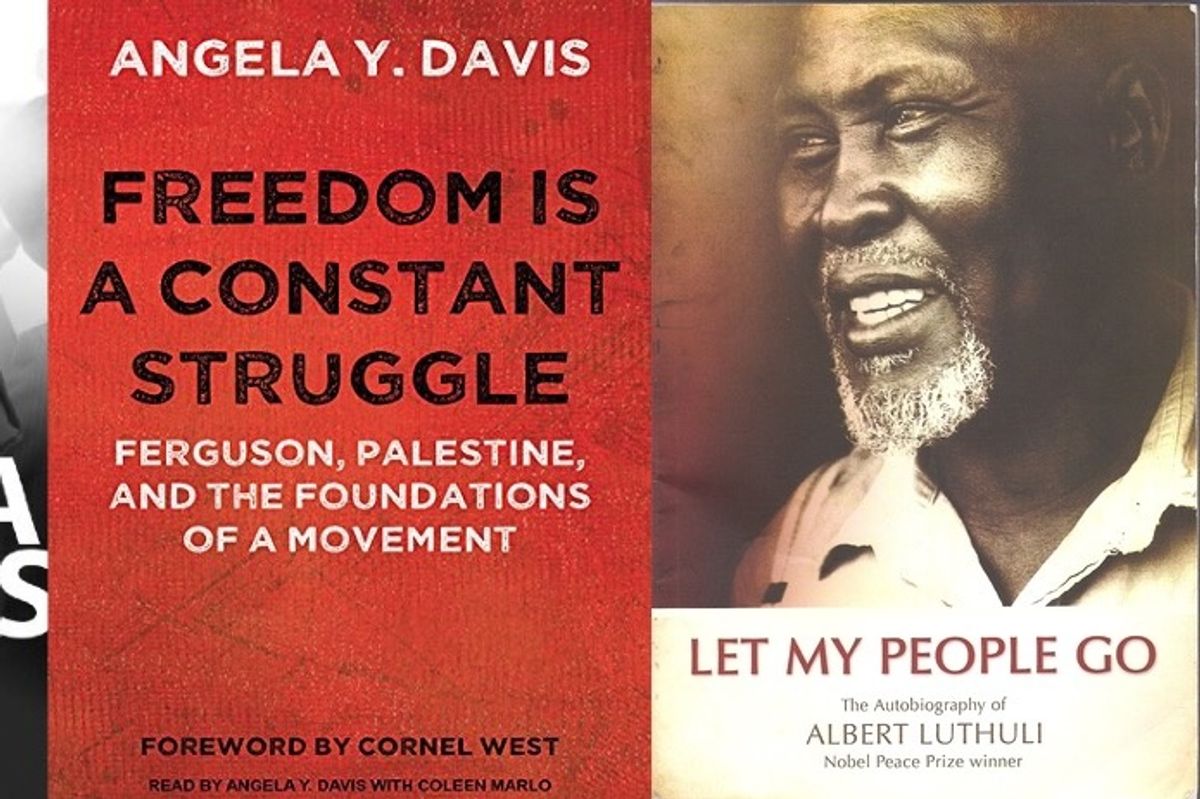
Here are 7 Important Books to Read About the Revolution
Book covers of 'Thomas Sankara Speaks', 'Freedom is a Constant Struggle' and 'Let My People Go'.
SEARCH

Here are 7 Important Books to Read About the Revolution
Letlhogonolo Mokgoroane hand-picks 7 books written by Black authors reflecting on the revolution. As there is continued political instability across the African continent (and the world), these books put into words the difficult experiences through which many Black people are living.